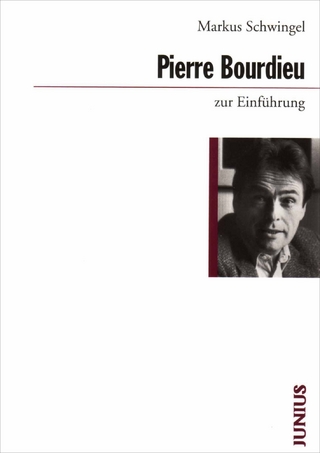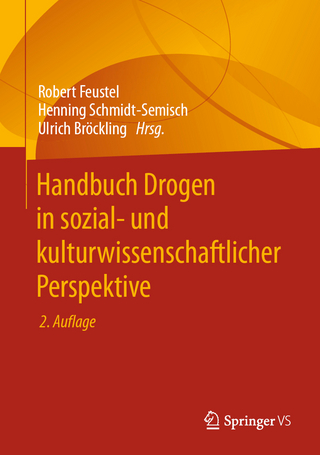
Driving With Care: Alcohol, Other Drugs, and Impaired Driving Offender Treatment-Strategies for Responsible Living
SAGE Publications Inc (Verlag)
978-1-4129-0597-8 (ISBN)
- Titel ist leider vergriffen;
keine Neuauflage - Artikel merken
The treatment protocol intensifies the focus on the three areas of cognitive-behavioral learning and change: 1) self-control over feelings and emotions and behavior outcomes; 2) developing strategies and skills to manage and improve family and interpersonal relationships; and 3) developing strategies and skills to increase responsible behavior in the community.
There is enhanced focus on understanding personal pathways to negative AOD outcomes and impaired driving, along with strengthening recidivism and relapse prevention skills.
Kenneth W. Wanberg, ThD, PhD, is a licensed psychologist in the State of Colorado and Director of the Center for Addictions Research and Evaluation, Inc. Harvey B. Milkman, PhD received his baccalaureate degree from City College of New York and his doctorate from Michigan State University. He is currently professor of psychology at Metropolitan State College of Denver. His doctoral research was conducted with William Frosch, MD, at Bellevue Psychiatric Hospital in New York City, on the User’s Drug of Choice. From 1980–1981, he completed a sabbatical exploration of addictive behavior in Africa, India, and Southeast Asia; in 1985 he was recipient of a Fulbright-Hays Lectureship award at the National University of Malaysia. He has represented the United States Information Agency as a consultant and featured speaker in Australia, Brazil, Iceland, The Netherlands, Peru, Turkey, and Yugoslavia. He is principle author with Stanley Sunderwirth of “The Chemistry of Craving,” and author of “Better than Dope,” featured articles in Psychology Today, October, 1983 and April, 2001 respectively. From September 1992–June 2002, he was author, principal investigator, and director of Project Self-Discovery: Artistic Alternatives for High-Risk Youth, a national demonstration model funded by The Center for Substance Abuse Prevention and the Edward Byrne Foundation. David S. Timken, Ph.D. has over 45 years experience in the traffic safety field. His specialty areas include the assessment , education and treatment of DWI offenders and he provides consultation, research and training. He is widely published and has presented numerous papers internationally as well as throughout the U.S. He holds membership in a number of professional organizations including the International Council of Alcohol, Drugs and Traffic Safety. Dr. Timken maintains a small clinical consultation practice.
Introduction
Session 1: Program Orientation: Understanding and Engaging the Process of Change
Session 2: Program Orientation: Tools and Targets for Change
Session 3: Pathways to Alcohol and Other Drug Use Problem Outcomes and Addiction
Session 4: AOD Problem Outcomes and Patterns
Session 5: Managing Cravings and Urges
Session 6: Skills in Cognitive Self-Control: Recognizing and Changing Negative Thoughts and Negative Thinking
Session 7: Skills in Cognitive Self-Control: Recognizing and Changing Error in Thinking
Session 8: Skills in Cognitive Self-Control: Managing Emotions, Stress and Depression
Session 9: Skills in Cognitive Self-Control: Recognizing and Managing Anger
Session 10: Social and Relationship Skills Building: Learning Communication Tools and Skills
Session 11: Social and Relationship Skills Building: Starting and Keeping a Conversation Going
Session 12: Social and Relationship Skills Building: Giving and Receiving Positive Reinforcement - Praise
Session 13: Social and Relationship Skills Building: Learning Problem Solving
Session 14: Social and Relationship Skills Building: Assertiveness Skills Development
Session 15: Social and Relationship Skills Building: Learning and Practicing Refusal Skills
Session 16: Social and Relationship Skills Building: Developing and Keeping Intimate and Close Relationships
Session 17: Strengthening Recidivism and Relapse Prevention Skills
Session 18: Relapse and Recidivism Prevention: Your Relapse Recidivism Prevention Plan and Lifestyle Balance
Session 19: Community Responsibility Skills: Strengthening Character and Prosocial Values and Behavior
Session 20: Community Responsibility Skills: Understanding and Practicing Empathy
Session 21: Community Responsibility and Relationship Skills: Resolving Conflicts and Negotiation Skill Development
Program Closure
| Erscheint lt. Verlag | 13.12.2004 |
|---|---|
| Verlagsort | Thousand Oaks |
| Sprache | englisch |
| Maße | 215 x 279 mm |
| Gewicht | 590 g |
| Themenwelt | Sozialwissenschaften ► Soziologie |
| ISBN-10 | 1-4129-0597-4 / 1412905974 |
| ISBN-13 | 978-1-4129-0597-8 / 9781412905978 |
| Zustand | Neuware |
| Haben Sie eine Frage zum Produkt? |
aus dem Bereich



